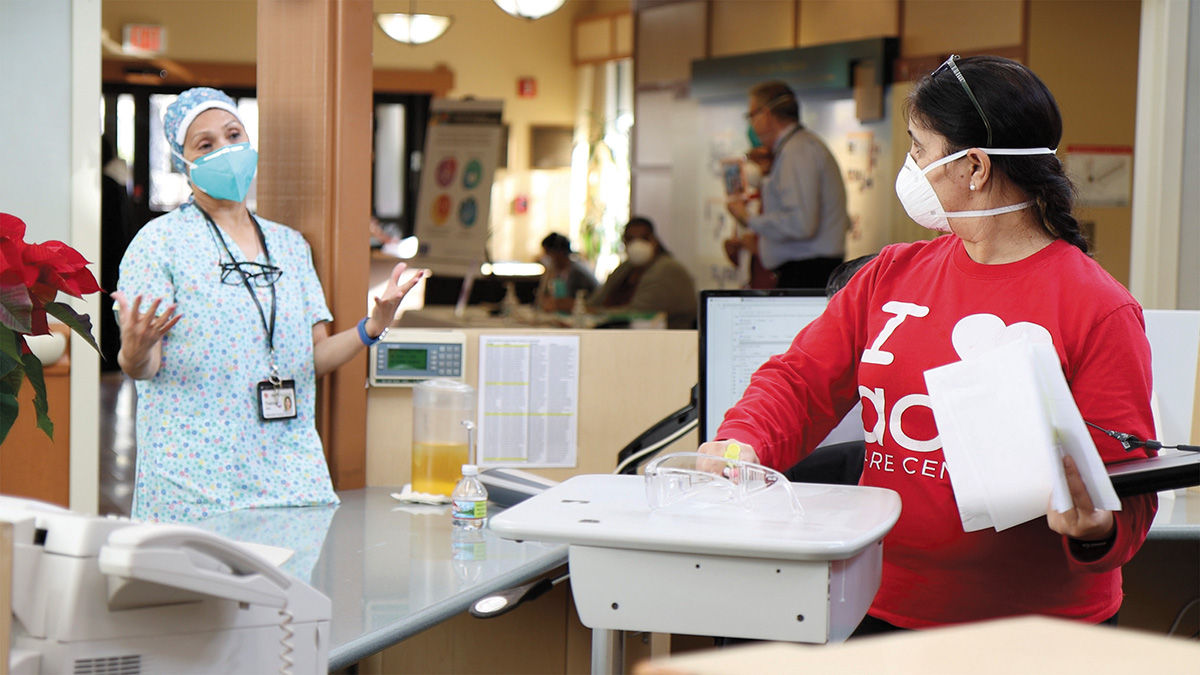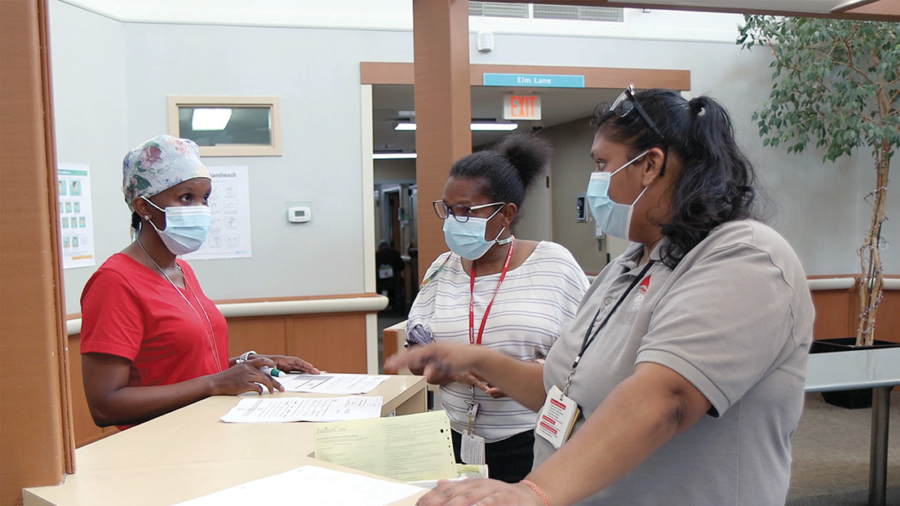Many healthcare professionals have dual caregiving roles at home which require them to juggle work, caregiving, and other family responsibilities. These are the ones sandwiched between taking care of their children, their parents, and sometimes a spouse who is ill.
Those who work at the ACC Care Center have yet another caregiving role: They care for vulnerable residents. Caring for dying, dependent, marginalized, or traumatized residents is particularly stressful, especially after caring for them over a prolonged period of time. A similar stress is felt by those who work at ACC Greenhaven Terrance and ACC Maple Tree village which provide 24/7 assisted living services.
I have witnessed firsthand the effects that our staff endured when they closely identified with residents, and ultimately absorbed the trauma or suffering of those they helped. When the pandemic hit, many of us went into full response mode and neglected to care for ourselves. Yes, we kept COVID-19 at bay, but the physical and emotional cost to ourselves was high. Our families felt the burden, too. Caregiver exhaustion is common all throughout the U.S. and is even more acute for those who work on the front lines of skilled nursing and assisted living.
Dr. Scott Stringer, ACC’s Medical Director, saw this coming. As a former emergency room physician, he knew what caregiver burnout looked like and how to prevent it. He promoted the idea of self-awareness, self-care, and setting boundaries. In other words, take care of yourself first. But in a complex environment like the ACC Care Center, how can healthcare professionals disengage from their caregiving role and find balance and respite? Is it even desirable? The answer is yes. At first, it feels like you are walking away from your responsibilities, but really you are going where you can recharge and come back better and stronger. It makes for a better you and for a better team. After all, professional caregiving requires intensity, endurance, and a positive attitude. The ability to sustain these qualities under adverse conditions, such as the pandemic, is essential. Setting boundaries and taking care of yourself first is possible at ACC because our management team and culture support it. My co-workers tell me to take a break or go home and rest, encouraging the respite I need to fully flourish. And I do the same for them. We are like a family. Everyone looks out for everyone, covering for each other when needed.

Open communication at ACC has allowed everyone from our CEO, Darrick Lam, to our staff members to learn about and support people who are struggling. And let’s be clear, at ACC there is no penalty or stigma attached to saying, “I need help” or “I have a personal problem.” We are well beyond that because our lives are too important. Anyone going through a rough patch knows they will be welcomed into a supportive environment. Indeed, I took time off to deal with some personal matters- and, upon returning, I was gratified to notice a caring element in each department. One could say that this higher level of human caring is the ultimate silver lining of COVID-19!
When someone has a problem that is not work-related, we try to help by being flexible at work. One person lost several family members in an auto accident. Do we proceed with our standard bereavement policy, or do we do something different because of the magnitude of the loss? What can we do to really help this person? Someone else was going through a major a financial crisis. We asked how can we restructure his job responsibilities and work hours to help him get through it? In both cases, we took care of them.
I’m very humbled to be working at an organization that adopts an ambitious mission, which is reflected in the day-to-day caring of our residents and of each other. With such a powerful sense of caring, ACC Care Center is more than just a facility to me. It is a group of amazing people. It is my work family. What other caregivers and I strive for the most is making a significant difference in individuals’ lives.
In the words of the poet Maya Angelou, “People will forget what you said, people will forget what you did, but people will never forget how you made them feel.”


Add a Comment